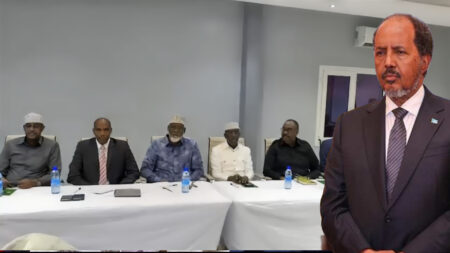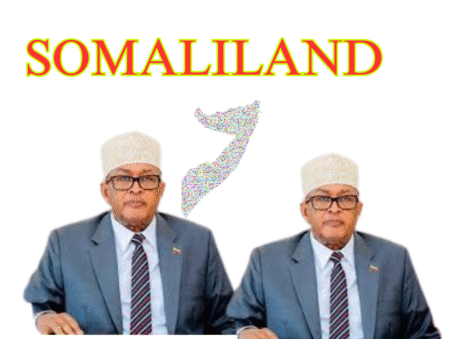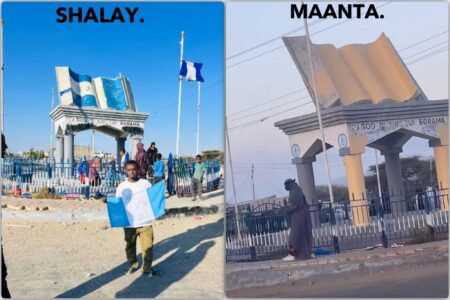“Somalia Ethical Failures in Politics: Bribery and Election Manipulation of MPs and Senators”
Somalia Ethical Failures in Politics The election of Members of Parliament (MPs) and Senators in Somalia has been marred by corruption, notably the exchange of money for votes. The country’s election system faces several significant issues that compromise its integrity and democratic processes. State leaders frequently display bias in the nomination and appointment of senators and MPs, favouring individuals who support their personal or political agendas, thereby undermining the principle of fair representation. Biased appointments are intensified by senators and MPs paying state leaders to secure their elections, creating a corrupt system where financial influence supersedes merit and public interest.
In addition, elections are often manipulated, with results frequently fabricated to ensure the victory of favoured candidates. This manipulation was closely tied to state leaders appointing their affiliates to critical positions, ensuring that government decisions serve their interests rather than the general population. These issues collectively contributed to a deeply flawed electoral system that stifles actual democratic governance and perpetuates corruption and nepotism. This corrupt election system organised by the clan and state leaders violates the Somali Provisional Constitution 2012, condemns corruption and establishes the Anti-Corruption Commission to combat it in public offices. However, the commission’s effectiveness is questioned due to limited resources and political interference.
The 4.5 clan power-sharing system has facilitated corruption in the election system. The primary role of the 4.5 clan power-sharing formula in Somali politics is to allocate parliamentary seats among significant clans. Despite its aim to ensure equitable representation, the 4.5 system has been hijacked by greedy leaders which affected a transparent system with corruption. Candidates frequently take advantage of clan loyalties by bribing clan elders and influential figures to secure nominations and votes.
This practice perpetuates a cycle of corruption where financial power supersedes merit and democratic principles. For example, the 2021-2022 parliamentary elections in Somalia saw widespread allegations of corruption. According to a whistle-blower, a significant number of MPs and Senators elected during this period were alleged involved in corrupt practices, paid substantial sums exchange for votes. This pervasive corruption erodes public trust in the electoral process and governmental institutions. Addressing these allegations is crucial for restoring integrity and confidence in our democratic system
Somali law includes mechanisms to hold MPs and Senators accountable for corruption, such as the Anti-Corruption Commission and judicial oversight. However, these mechanisms often suffer from political interference and insufficient resources, undermining their effectiveness. It is therefore crucial for the international community to get engaged in helping the Somali government. Somalia is a signatory to international treaties emphasising anti-corruption, including the United Nations Convention against Corruption (UNCAC). Somali civilian norms, which are deeply rooted in traditional and clan-based structures, also play a significant role. Although these norms can sometimes be exploited for corrupt practices, they also provide a basis for accountability. Community leaders and civil society organizations are essential in promoting transparency and ethical behaviour among elected officials.
Hypocrisy in Somali Politics:
it is disgraceful that MPs and Senators, who gained power through corrupt practices, frequently address the issue of corruption in parliament, mainly when they do not obtain ministerial positions. Those elected through corruption lack the ethical and moral grounds to discuss corruption. Some of the current MPs and Senators have no moral authority to speak about government corruption, given their corrupt election methods. This hypocrisy underscores the systemic nature of the problem. Furthermore, MPs elected through corrupt practices should not deceive the public by denouncing government corruption. Doing so not only betrays public trust but also perpetuates a cycle of dishonesty and misinformation. Such actions are fundamentally deceptive and undermine efforts to address the root causes of corruption. When an elected official who paid bribes condemns corruption, it forces a broader reflection on the political system’s integrity. These actions could stimulate discussions on comprehensive electoral reform and establishing mechanisms for accountability and transparency.
Proposed Election System One Man, One Vote:
The president’s new proposal to implement a one-person, one-vote system is a beacon of hope in the fight against corrupt practices. This system would empower individual voters and diminish the influence of clan elders and financial power in elections. By enabling every citizen to vote directly, the democratic process would become more transparent and representative. This reform could significantly reduce corruption, as candidates would need to appeal to the broader electorate rather than relying on financial transactions to gain votes. Embracing this system could lead to a more equitable and trustworthy political environment in Somalia.
In conclusion,
the election of Somali MPs and Senators through corruption poses significant challenges to democratic governance and development. Tackling this corruption in the Somali election system requires an adequate legal and institutional framework, advanced international anti-corruption standards, and harnessed civilian norms. Somalia can progress towards a more democratic and equitable political system by enhancing accountability mechanisms and encouraging a culture of transparency. The Somali people need to identify the MPs and senators who have been elected through corrupt means. These MPs and senators elected through corrupt practices should not deceive the public by denouncing government corruption, yet they are fruits of the same tree. Elected officials who recognize and publicly denounce corruption can significantly contribute to this transformation by emphasizing the critical need for systemic reform to establish a trustworthy and effective government.
All this information, including the election corruption and MPs and Senators elected through corruption, was received from a whistle-blower, shedding light on the extent of corruption within the Somali parliamentary elections and the urgent need for reform. According to the whistleblower protected under applicable whistleblower protection laws, : “A significant number of MPs and Senators elected during this period were allegedly involved in corrupt practices, paying substantial sums in exchange for votes. This pervasive corruption severely undermines public trust in the electoral process and governmental institutions. Addressing these allegations is crucial for restoring integrity and confidence in our democratic system. Therefore, abolishing the 4.5 system and implementing the one-person, one-vote system is necessary. This would go a long way to eliminating the corrupt practices that have plagued Somali elections.




